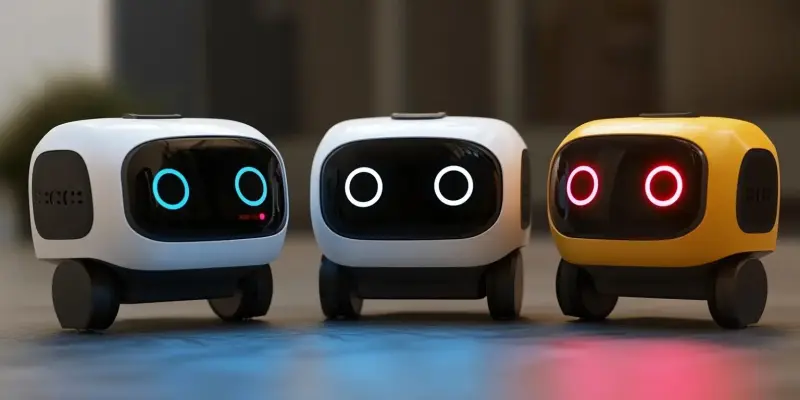In an era where artificial intelligence continues to integrate with various industries, the introduction of Denmark-based Universal Robots’ UR AI accelerator toolkit marks a significant leap forward. The toolkit is designed to expedite the development of AI-powered collaborative robots, commonly known as cobots. By combining advanced hardware and software into an out-of-the-box platform, researchers and developers can swiftly move from concept to deployment, enhancing capabilities such as pose estimation, tracking, and object detection. This development aims to mitigate the risks associated with AI solution development and shorten the deployment times, thus making AI robotics more accessible.
Universal Robots’ Polyscope X platform, coupled with Nvidia’s Jetson AGX Orin, forms the backbone of this toolkit. This powerful combination leverages the Nvidia Isaac Manipulator for robust AI performance, ensuring that developers have access to the necessary computational prowess. This capability is further augmented by the Orbbec Gemini 335Lg 3D camera, which supports a wide range of AI solutions. The comprehensive toolset offered by the UR AI accelerator toolkit provides flexibility in terms of programming languages and libraries, ensuring its broad applicability across various industries, from manufacturing to healthcare. The main aim here is to create a seamless experience, reducing the time and resources needed for effective AI integration.
James Davidson from Teradyne Robotics has emphasized the importance of this toolkit in reducing development risks and shortening deployment times for AI solutions. This reflects Universal Robots’ commitment to advancing accessible AI robotics. By providing a more straightforward path from research to implementation, the toolkit helps demystify AI development, making it a more approachable endeavor for companies of all sizes. CEO Kim Povlsen has underlined that Universal Robots is already a leader in the collaborative robotics space and aims to push technological boundaries even further. The company’s forward-thinking approach anticipates significant impacts not only on partners and customers but also on the future dynamics of AI incorporation in industrial applications.
The introduction of the UR AI accelerator toolkit is aligned with Universal Robots’ broader strategy to democratize AI-driven robotics. The toolkit serves as a catalyst for innovation, enabling developers to experiment and implement AI solutions more efficiently. This is paramount in an industry where time-to-market can significantly influence competitiveness. The emphasis on a flexible toolset means that developers are not confined to a rigid framework but can choose the best tools and languages that fit their specific needs. This adaptability is particularly important in a field as dynamic as AI, where new technologies and methods continually emerge.
Moreover, the integration of Nvidia’s sophisticated hardware ensures that the toolkit is not only powerful but also scalable. Whether a project involves a simple AI function or a complex series of tasks, the UR AI accelerator toolkit can handle the computational demands. Universal Robots has recognized the varying needs of different sectors and has crafted a solution capable of addressing those diverse requirements. The incorporation of cutting-edge technology such as the Orbbec Gemini 335Lg 3D camera further exemplifies the toolkit’s versatility, making it suitable for a broad array of applications, from industrial automation to advanced research in AI.
In conclusion, Universal Robots’ introduction of the UR AI accelerator toolkit has paved the way for faster and more efficient development of AI-powered cobots. The out-of-the-box platform combining advanced hardware and software significantly reduces development risks and accelerates deployment processes. By leveraging Nvidia’s powerful technology and offering a flexible range of tools, the toolkit ensures that AI robotics becomes more accessible and versatile. This initiative stands to redefine industry standards, making robust and scalable AI solutions attainable for a wider range of industries. Universal Robots’ commitment to pushing technological boundaries indicates a promising future for AI integration.

